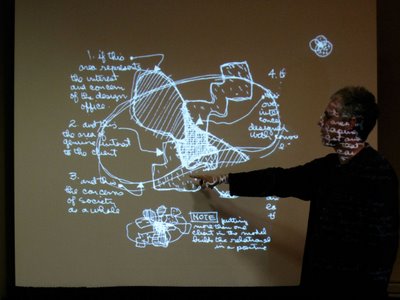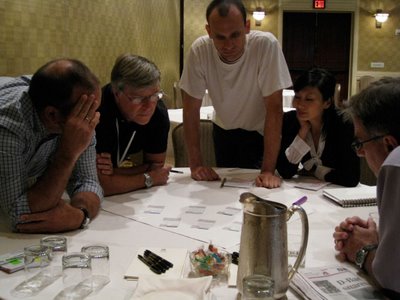Sunday
Sep142008
Cranbrook / IIT Smackdown, II
 Sunday, September 14, 2008 at 2:00PM
Sunday, September 14, 2008 at 2:00PM A pair of slides from yesterday's presentation by Cranbrook's Scott Klinker and IIT's Jeremy Alexis. Above, IIT aims to root out inefficiencies in process, while Cranbrook asks, "But what will it look and feel like?
Above, radical craft: genetic code-generated silverware. At this point in the presentation, the discussion turned toward what we might call digital baroque.
I found the presentation compelling, with both sides—IIT's down-to-earth approach and Cranbrook's "things with attitude"—represented well. The result confirmed what I've believed all along: it's not either / or, and we can stop the name-calling. There is a valid place for both.
 Katherine Bennett | Comments Off |
Katherine Bennett | Comments Off | tagged  Cranbrook,
Cranbrook,  IIT,
IIT,  Jeremy Alexis,
Jeremy Alexis,  Polar Opposites,
Polar Opposites,  Scott Klinker
Scott Klinker
 Cranbrook,
Cranbrook,  IIT,
IIT,  Jeremy Alexis,
Jeremy Alexis,  Polar Opposites,
Polar Opposites,  Scott Klinker
Scott Klinker 





